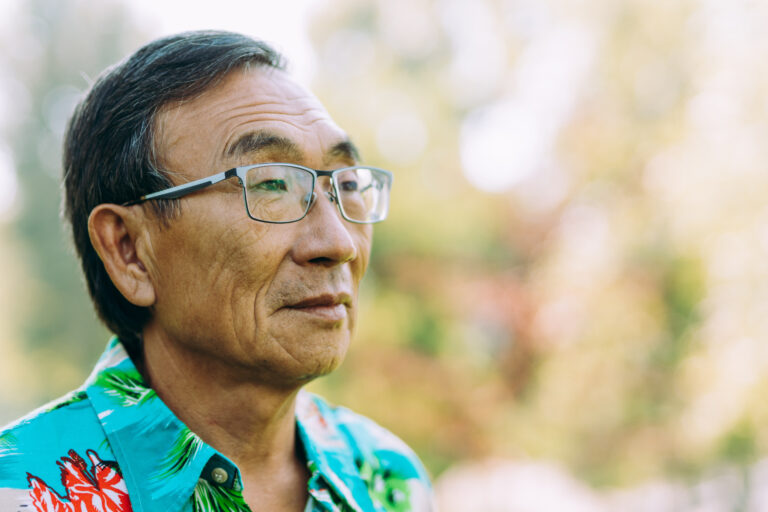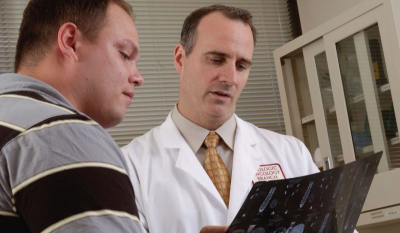The Importance of Seeking a Second Opinion in Prostate Cancer Treatment
Second Opinions: A Key to Prostate Cancer Treatment Clarity
By Ephram Smith (Prostate Cancer Survivor and support group leader)
When you’re told you have prostate cancer, it’s normal to feel scared and confused. In my 10 years as a prostate cancer patient advocate, I’ve seen how getting a second opinion can make a big difference. A second opinion means asking another cancer doctor to review your diagnosis and treatment plan. It’s not about hurting anyone’s feelings – it’s about making sure you have the best care. This blog post will explain when to seek a second opinion, what it involves, and how it can help with diagnosis, treatment decisions, and peace of mind. I’ll also share real patient stories and answer common questions like cost, time, and how to talk to your current doctor about it.
Why a Second Opinion Matters
A second opinion is like having another expert look at your case. Why does it matter? Because it can give you new information and confidence. Here are some key benefits of getting a second opinion in prostate cancer care:
- Make sure the diagnosis is right: Another doctor can confirm your cancer type and stage (protonintlondon.com). This helps ensure you’re treating the right problem. For example, a second pathologist might review your biopsy to verify how aggressive the cancer is. Confirming the correct diagnosis (and seeing if the cancer has spread) is a top reason to seek another view (cancercare.org).
- Learn about all treatment options: Prostate cancer can often be treated in several ways – surgery, radiation, hormone therapy, active surveillance (watchful waiting), or other newer treatments. A different specialist might suggest options your first doctor didn’t mention protonintlondon.com. You may discover clinical trials or advanced therapies that give you more choices protonintlondon.com. Having a second doctor weigh in can broaden your perspective on what treatments are available.
- Get clarity on information: Hearing everything the first time can be hard. A second doctor might explain the cancer and treatments in a way that’s easier to understand. They can clarify confusing details about your diagnosis or side effects (protonintlondon.com). Sometimes just hearing information again (in simpler words) helps it sink in. This can make a complicated situation feel more straightforward.
- Feel confident and calm: Perhaps the biggest benefit is peace of mind (protonintlondon.com). A second opinion can reassure you that you’re on the right track or highlight something new. Either way, you’ll feel more confident about your decision. Knowing that two experts agree on your care – or that you’ve explored all options – can relieve a lot of stress. It helps you feel sure you are making the best choice for your health.
In short, a second opinion can confirm what you’ve been told or provide new insights. Both outcomes are helpful. If it confirms the first diagnosis and plan, you can move forward without doubt (uvahealth.com). If it offers a different approach, you now have more information to consider. As an advocate, I always remind patients: More knowledge is power. You deserve to understand every option before deciding on treatment.
When to Consider a Second Opinion
Many people with cancer get a second opinion, and it’s especially common in prostate cancer. But when should you seek one? Here are some times it might be a good idea (cancer.org):
- Before starting treatment: The best time to get a second opinion is before you begin any treatment (foxchase.org). Once treatment starts, it can be harder to change course. If your doctor has given you a treatment plan, consider pausing and getting another doctor’s thoughts first. Prostate cancer usually grows slowly, so taking a few weeks for a second opinion is generally safe (foxchase.org). (Most prostate tumors won’t change in that short time.)
- If you feel unsure or uncomfortable: Listen to your instincts. If something about the diagnosis or plan doesn’t feel right, or you have unanswered questions, a second opinion can help (cancercare.org). For example, if you think your doctor is underestimating how serious the cancer is, or if you just “want peace of mind that you have the correct diagnosis and are making the right choice” (cancer.org), then seek another view. It’s your body and you have a right to understand everything.
- When facing a rare or complex situation: Prostate cancer is common, but there are variations. If you have an unusual subtype or very aggressive cancer, or you’re young to have prostate cancer, getting another expert involved is wise (cancer.org). A doctor who specializes in your exact condition (for instance, an expert at a major cancer center) might know of different approaches for rare cases.
- If you have multiple treatment options: Sometimes your doctor might give you a few choices (surgery vs. radiation, etc.). It can be hard to decide. A second opinion might help you weigh these options. Another specialist might explain the pros and cons in a way that makes your decision clearer (cancer.org). They might even suggest a third option you hadn’t heard about.
- When treatment has serious side effects or consequences: All prostate cancer treatments have side effects (for example, surgery or radiation can affect urinary and sexual function (protonintlondon.com). If the recommended treatment could greatly affect your quality of life, it’s reasonable to double-check if it’s truly the best or only choice (cancercare.org). You might learn about alternatives that balance treating the cancer with maintaining your lifestyle.
- If your cancer isn’t responding to treatment: This applies if you’ve started treatment but it’s not working well. Before trying the next step, you might get a second opinion on what to do next (cancercare.org). Maybe there are clinical trials or new medications to consider (cancercare.org).
- Any time you just want to be absolutely sure: Even if everything seems straightforward, it’s okay to seek confirmation. Some patients get a second opinion just to confirm the stage of the cancer or the pathologist’s reading of the biopsy. This can especially help if there’s any uncertainty about the type or stage of cancer (cancer.org). It’s like having someone double-check the important details.
Remember, asking for a second opinion is common. Many patients do it, and doctors are used to it (cancer.org). Don’t worry that you are being difficult – you are being thorough. This is your health, and you have every right to seek more information.
What Does Getting a Second Opinion Involve?
Getting a second opinion may sound complicated, but it’s a straightforward process. Here’s what’s usually involved:
- Talk to your current doctor: Let your primary doctor or urologist know you’d like a second opinion. You can be honest and polite. For example, you might say, “Before we start treatment, I’d like to get a second opinion. Will you help me do that?” (foxchase.org). Most doctors will understand and even help refer you to another expert (foxchase.org). In fact, many cancer doctors welcome second opinions and some even get them from their peers for tough cases (uvahealth.com). Your doctor should provide you with your medical records or anything the next doctor needs.
- Gather your medical records: A second-opinion doctor will need details about your diagnosis. You’ll want to collect:
- Pathology reports from any prostate biopsy or surgery (cancer.org) (these tell what the cancer looks like under the microscope, like the Gleason score).
- Test results such as PSA blood test results, imaging scans (MRI, CT, bone scans) and reports, and any other lab work.
- Doctor’s notes or treatment plan summaries you’ve been given (cancer.org).
- A list of current medications or treatments you’re on (cancer.org).
You can ask your doctor’s office or hospital records department for copies of everything (cancer.org). It’s your right to have these. Having these documents ready will help the second doctor give you the best advice without repeating tests unnecessarily (foxchase.org).
- Find the right specialist: You’ll want to see a doctor who treats a lot of prostate cancer. Often this is a urologist or oncologist who specializes in prostate tumors. You can find one by asking your current doctor for a recommendation (foxchase.org), or contacting a major cancer center or university hospital. Some patients also reach out to national cancer institutes or use trusted online tools to find experts. The goal is to get someone experienced to review your case.
- Set up an appointment: Call the new doctor’s office and explain that you are seeking a second opinion on a prostate cancer diagnosis. They will guide you – often, they’ll schedule an appointment and tell you where to send your records ahead of time (uvahealth.com). If travel is an issue, ask if they offer remote consultations or video visits (some big centers do). Try to get an appointment as soon as is reasonable, but even if you have to wait a couple of weeks, that’s usually okay (prostate cancer generally won’t drastically worsen in that short period) (foxchase.org).
- The second opinion consultation: At the appointment, the second doctor will review all your records. They might also examine you or even request additional tests if needed uvahealth.com. For example, they may have their pathologist review your biopsy slides, or they might suggest an MRI if you haven’t had one. Don’t be alarmed if they want to repeat a test – it can be to double-check something important. After looking at everything, the doctor will share their opinion. This could confirm what you were already told, or it might provide a different take on the diagnosis or a new treatment plan uvahealth.com. Be sure to ask questions and take notes.
- Deciding on your next steps: Once you have the second opinion, you’ll need to decide how to use that information. If the second opinion is the same as the first, you might feel relieved and continue with your original doctor’s plan, now with greater confidence. If it’s different, you have a decision to make: you can discuss the new ideas with your first doctor (uvahealth.com), or you might choose to switch to the second doctor for treatment. Some patients even seek a third opinion if the first two differ a lot (cancer.org). The choice is yours – the goal is to feel comfortable with your plan.
Through it all, remember that you don’t have to abandon your first doctor just because you got a second opinion (uvahealth.com). You can stay with whichever doctor/team you trust the most. The second opinion is for your knowledge. Many people actually return to their original doctor to carry out treatment, but now with more confidence that it’s the right approach.
How a Second Opinion Can Help with Diagnosis and Treatment
Second opinions can improve both your diagnosis accuracy and your treatment decisions:
- Confirming your diagnosis and stage: Prostate cancer diagnosis usually involves a biopsy (to check cancer cells) and scans to see if it has spread. Mistakes or differences in interpretation can happen. One pathologist might grade a tumor as less aggressive, while another sees it as more aggressive. A second opinion can confirm the cancer’s stage and grade (cancercare.org), or catch something missed. For example, one patient’s biopsy was first read as a lower-risk cancer; a second review found some higher-risk features that changed the treatment plan. Getting the stage right (knowing if cancer is just in the prostate or beyond) is crucial for choosing the proper treatment. Another doctor might also suggest additional tests – like an advanced MRI or PET scan – to ensure the diagnosis is precise (conradpearson.com). You want the most accurate picture of your cancer, and a second opinion helps provide that.
- Choosing the best treatment option: Prostate cancer isn’t one-size-fits-all. Some cases may not need immediate treatment (they can be watched for a while), while others require surgery or radiation. Treatment also depends on your personal priorities – for instance, some men want to avoid certain side effects if possible. A second opinion can introduce new treatment options that fit your needs. Perhaps your first doctor recommended surgery, but the second doctor explains that active surveillance (regular monitoring) could be safe in your situation because the cancer is very slow-growing. Or maybe the second doctor suggests radiation with a special technique to spare side effects, or a clinical trial of a new therapy (protonintlondon.com, foxchase.org). This doesn’t mean your first doctor was “wrong” – often there are multiple valid approaches. But hearing another perspective lets you consider all avenues before deciding (protonintlondon.com). I’ve seen patients avoid unnecessary treatments thanks to a second opinion. I’ve also seen others learn about a cutting-edge treatment (like a new drug or proton therapy) that they wouldn’t have known about otherwise. In the end, you want a treatment plan that you feel is right for you. A second opinion can expand your choices and ensure you’re aware of every option.
- Improving your peace of mind and understanding: Beyond the medical facts, a second opinion can greatly help with your emotional well-being. It’s common to feel anxious after a cancer diagnosis. You might wonder, “Do I really need this treatment? Is there something we’re missing?” Getting another doctor’s input can ease those worries. Even if nothing new comes up, many patients feel less stress knowing they left no stone unturned (hopeandhealingcare.com). It can also help you feel more in control – you took an active step in your care, which is empowering. Sometimes the second doctor might explain the situation in a clearer or more reassuring way, which can make you feel better about what’s happening. All of this contributes to emotional clarity. You can sleep easier at night knowing that you have all the facts and that your plan has been vetted by two professionals. As one cancer center notes, a second opinion helps you “feel confident that you’re in good care”(uvahealth.com). And confidence is so important when you’re facing cancer.
Real Patient Stories: Second Opinions in Action
Let me share a couple of real-world examples from patients (names changed for privacy) that show how second opinions can change or confirm a care plan:
- John’s story – Avoiding unnecessary treatment: John, sixty-seven, had been having some urinary troubles. His local doctor found a high PSA level (a potential sign of prostate cancer) and a biopsy showed cancer. The local team immediately recommended surgery to remove the prostate. John felt uneasy about rushing into surgery and the life changes it could bring, so he sought a second opinion at a large cancer center. The second doctor reviewed John’s biopsy and scans. She told him that his cancer was at an early stage and not very aggressive. She offered an option of active surveillance – monitoring the cancer closely with regular tests and only doing treatment if it started to worsen. She also discussed treatments like radiation as alternatives. Armed with this information, John realized he had choices. In the end, he decided to hold off on surgery and do active surveillance, with the understanding that if the cancer showed any growth, he would treat it. This plan came with careful monitoring. John felt relief because the second opinion confirmed he wasn’t in immediate danger and could possibly avoid major surgery. A year later, John’s cancer is stable and hasn’t needed active treatment yet. He’s grateful he got that second opinion, as it saved him from a procedure he might not have needed. As John put it, “It eased my worries to know another doctor agreed I could wait and watch safely.” This story highlights how a second opinion can present less invasive options when appropriate, especially for slow-growing prostate cancer (foxchase.org).
- Anthony’s story – Finding a new treatment option: Anthony, a 55-year-old engineer, was diagnosed with prostate cancer after a routine screening. The first hospital he visited gave him some information about his cancer and suggested surgery as the best course. Anthony felt the information was incomplete – “I didn’t get enough information,” he said about that first experience (henryford.com). Wanting to understand all his options, he decided to go to another hospital for a second opinion. There, the doctors reviewed his case with fresh eyes. They performed an MRI to get a better look at the tumor and even did a more targeted biopsy of the prostate using the MRI images to guide them (henryford.com). This detailed look confirmed Anthony’s cancer was real but still at a lower risk stage. The new team told him he did not need immediate treatment; instead, they recommended monitoring at first. Anthony chose this watchful waiting approach with regular check-ups. After some time, one of the follow-up MRIs showed the tumor might be growing. The doctors then discussed treatment, and they offered Anthony an opportunity to join a clinical trial – a special study of a new treatment. The trial was testing a targeted drug injected into the tumor to shrink it before surgery, hoping to spare healthy tissue. This was an option Anthony never knew about before. He decided to go for it. The drug helped shrink his tumor, and later he underwent surgery with success. Anthony’s second-opinion journey meant he got cutting-edge care and a personalized plan. He said that if he had stayed with the first opinion, he would not have learned about these advanced options. His cancer was treated, and he felt confident he had gotten the most up-to-date care possible. Anthony’s experience shows that a second opinion can open doors to treatments (like clinical trials or newer technologies) that a smaller hospital might not provide (henryford.com). It also shows how a patient who felt unsatisfied with the information given by one provider can get clarity from another.
- Maria’s story – Peace of mind in agreement: (Prostate cancer mainly affects men, but I include Maria’s perspective as a wife and caregiver.) Maria’s husband was diagnosed with intermediate-risk prostate cancer. Their local urologist recommended a combination of radiation and hormone therapy. Maria encouraged her husband to get a second opinion because she wanted to be absolutely sure this aggressive approach was necessary. They went to a prostate cancer specialist in another city. After reviewing everything, the specialist agreed with the original treatment plan. He even praised the local doctor for starting on a solid course. He answered all the questions Maria and her husband had and explained why that plan was the best for the husband’s case. This confirmed that they were doing the right thing. While the second doctor didn’t change the treatment, he did suggest some ways to manage side effects better, like specific exercises and medications to help with the hormone therapy symptoms. Maria’s husband proceeded with the treatment back home, and they both felt much calmer and confident. “It was worth it just for the peace of mind,” Maria said. This example shows that even if a second opinion doesn’t change the plan, it can strengthen your trust in that plan. Both doctors essentially formed a team in Maria’s mind, and she felt relief knowing experts agreed on what to do.
Each of these stories is different, but they all show the value of double-checking. Second opinions have helped patients avoid overtreatment, discover new options, and confirm the right path. As an advocate, I have witnessed many such outcomes. Not every second opinion leads to a dramatic change – sometimes it simply confirms the first doctor’s approach – but even that confirmation has great value for patients and families.
Common Questions and Concerns about Second Opinions
It’s natural to have questions or worries about seeking a second opinion. Let’s address some of the common concerns:
- “Will I upset or offend my doctor by getting a second opinion?” – In most cases, no, you won’t upset them. Doctors are professionals. Cancer doctors especially know that patients often seek second opinions (uvahealth.com). Many oncologists actually encourage it and even do it themselves with colleagues. Your doctor should want you to feel comfortable and confident. As the University of Virginia Cancer Center notes, “Your cancer team should encourage and welcome a second opinion. They want you to get the best care and feel confident about it.” (uvahealth.com). A good doctor will understand that it’s about your peace of mind, not mistrust. They should be willing to help you with the process by providing records or referrals. If a doctor truly gets offended or discourages a second opinion, that might be a red flag to you – because most doctors understand it’s standard practice.
- “Do I have time to get a second opinion? What about delaying treatment?” – Generally, yes, you have time. Prostate cancer often grows slowly (foxchase.org). Taking a few weeks (or even a couple of months for a complex second opinion) is usually not going to make a difference in outcomes for most prostate cancers. It’s always important to ask your doctor how urgent your specific case is. If you have a very aggressive cancer, you’ll want to schedule the second opinion quickly (within days to a week or two). But remember, as one cancer expert said, prostate tumors change over months, not days, so waiting a short time to get another opinion typically won’t harm your health (foxchase.org). The peace of mind or additional informationyou gain can be well worth the slight delay. In fact, many patients later say they’re glad they took that time before jumping into treatment. Just keep your doctors informed that you are obtaining another opinion and discuss how long you can safely wait.
- “Will my insurance cover a second opinion? What about cost?” – Many insurance plans do cover second opinions for cancer. Some plans might require you to stay in-network (seeing a doctor they approve) or get pre-authorization, so it’s wise to call your insurance and ask. In some cases, insurance companies themselves ask for a second opinion before they approve certain treatments (cancer.org). Always check your policy or talk to a representative so you don’t get surprise bills. If you’re worried about cost, also ask the second opinion doctor’s office about any fees upfront. Sometimes a consultation may have a co-pay or a specialist fee. If you don’t have insurance, see if the hospital has financial counselors or programs to reduce costs for second opinions. There are also organizations that offer free or low-cost second opinion services for cancer patients (usually remotely). Don’t let cost deter you from at least exploring a second opinion – there may be resources to help.
- “How do I talk to my doctor about wanting a second opinion?” – It can feel awkward, but remember it’s a common request. You can be direct but polite. For example, you could say: “I really appreciate all you’ve done. Before I start treatment, I’d like to get a second opinion to be sure we’ve covered everything. Can you recommend someone or help me with that?” A similar suggestion from the American Cancer Society is: “If you had my type of cancer, who would you see for a second opinion?” (cancer.org). Often this approach shows you still value your doctor’s expertise (since you’re asking for their input on who else to consult). Phrasing it as wanting to “have all bases covered” or “get more information” is a gentle way to bring it up (cancer.org). Most doctors will react supportively and agree that it’s a good idea. They might even suggest a colleague.
- “What if the second doctor says something totally different?” – Sometimes two doctors might give you different opinions on treatment. This can be confusing, but it isn’t bad – it gives you perspective. If this happens, you have a few options. You can schedule another meeting with your first doctor and say, “The other doctor recommended X instead of Y – can we talk about this?”(uvahealth.com). Ask each doctor to explain why they recommend their plan, and what evidence or guidelines they base it on (cancer.org). You might also seek a third opinion to break the tie or offer more insight (cancer.org). In the end, you get to decide which plan you feel is best. Sometimes a blend of ideas even emerges – for instance, your original doctor might adjust the plan after hearing the second opinion. Use the differing opinions as useful information. It’s like getting advice from two trusted teachers – you can weigh both and choose what makes sense for you.
- “Do I have to switch to the second doctor if I get a second opinion?” – Not at all. Getting a second opinion doesn’t mean you’re transferring all your care to that second doctor (unless you want to). You can absolutely return to your first doctor and continue treatment with them (uvahealth.com). Many people do that, armed with the new information. Of course, if you prefer the second doctor’s approach or communication style, you might decide to change doctors – that’s your right. But it’s not required. You can even have your first doctor coordinate with the second-opinion doctor if needed. The goal is simply to make the best treatment plan, with whichever team you choose.
- “Is it worth the hassle to get a second opinion?” – As someone who has worked with prostate cancer patients for years, I firmly believe yes, it’s worth it in most cases. Your health is critical, and decisions about cancer treatment can affect the rest of your life. Spending a little extra time to double-check can save you from regrets later. Even if the second opinion just confirms everything, that confirmation is valuable. And if it provides new insight, it could significantly improve your outcome or quality of life. One patient told me, “Knowing I left no stone unturned gave me peace of mind, no matter what happened.” A second opinion is like an insurance policy for your decision – you hope you won’t hear anything drastically new, but if you do, you’ll be thankful you asked. And if you don’t, you gain confidence. That is almost always worth it.
Tips for Navigating Second Opinions
To wrap up the advice, here are a few quick tips from an advocate’s perspective for anyone considering a second opinion in prostate cancer care:
- Don’t delay communicating: If you want a second opinion, tell your doctor sooner rather than later. It’s better to pause before treatment than to stop mid-treatment.
- Keep an organized file: Have a folder (physical or digital) with all your test results, scans, and reports. This makes it easy to share with another doctor and saves time.
- Bring someone with you: If you go to a second-opinion appointment, consider having a spouse, family member, or friend come along. They can help ask questions and remember information. It’s often helpful to have another set of ears, especially if you’re feeling anxious.
- Write down questions: Before the appointment, jot down any questions or concerns you have. During a stressful doctor visit, it’s easy to forget what you wanted to ask. A list ensures you cover everything.
- Compare the options: After you have both opinions, list out the recommended treatments and what you’ve learned about each. Think about what matters most to you – curing the cancer, minimizing side effects, preserving certain functions – and see which plan aligns with your goals. Sometimes using a simple pros and cons list for each plan can make things clearer.
- Use reliable information: If you’re researching on your own, stick to trusted sources (major cancer centers, reputable websites). Be cautious with random internet forums. You can also use guidelines from groups like NCCN (National Comprehensive Cancer Network) which are used by doctors to plan treatments (cancer.org) – there are patient-friendly versions available. This can help you understand what the standard of care is for your situation.
- Trust yourself: Finally, trust your instincts and judgment. You are the one who lives with the outcomes of the treatment. Doctors provide expert advice, but you are the decision-maker. Gather all the information, listen to the experts, and then do what feels right for you. It might be sticking with Doctor #1’s plan, or going with Doctor #2’s, or even seeking another viewpoint. An advocate’s role (and doctors’ role) is to support you in that choice.
Conclusion
In prostate cancer care, a second opinion is not about offending your doctor or wasting time – it’s about empowering yourself. It’s an important part of taking charge of your health journey. By seeking a second opinion, you ensure that you have explored all paths, confirmed critical details, and made an informed decision about your treatment. The process is usually easy to do and well worth the effort for the confidence it brings.
As a seasoned patient advocate, I’ve seen second opinions provide clarity and comfort to countless men and their families. Whether it leads to a new treatment that beats the cancer, confirms that your current plan is right, or simply gives you peace of mind, a second opinion is a valuable tool in your care. You deserve the best possible information and care for your prostate cancer. Don’t hesitate to ask questions and seek that extra insight. In the end, you’ll know that you did everything you could to get the best outcome – and that peace of mind is priceless.
Remember, you are not alone on this journey. Doctors, nurses, advocates, and even fellow patients are there to help. If you’re considering a second opinion, go for it. It might just be the key to unlocking the best care for you. Always keep in mind: when it comes to your health, it’s okay to politely say, “Let’s double-check this, I want to be sure.” Your future self will thank you for it.(uvahealth.com, foxchase.org)






